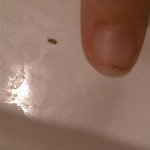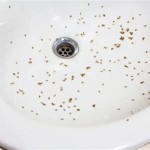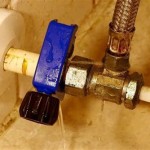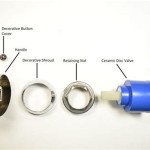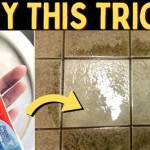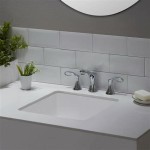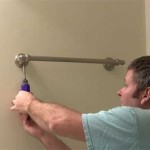Bathroom Sink Smells: Essential Aspects
Bathroom sink smells can be an unpleasant and persistent issue. Tackling the problem requires understanding the potential causes and implementing effective solutions. Here are the essential aspects of bathroom sink smells, along with practical tips for addressing them.
Causes of Bathroom Sink Smells
Several factors can contribute to bathroom sink smells, including:
- Clogged Drain: Hair, soap scum, and other debris can accumulate in the drain, trapping water and creating an environment for bacteria to thrive.
- Faulty P-Trap: The P-trap below the sink holds water to prevent sewer gases from escaping. A cracked or loose P-trap can allow odors to permeate the bathroom.
- Dry or Broken Vent Pipe: The vent pipe connects the sink drain to the roof, allowing sewer gases to escape. A dry or broken vent pipe can cause odors to back up into the bathroom.
- Mold or Mildew: Moisture and organic matter in the bathroom can lead to mold or mildew growth, which emits a musty odor.
- Mineral Buildup: Hard water can deposit mineral scale on the sink drain and faucet, providing a breeding ground for bacteria and unpleasant odors.
Solutions for Bathroom Sink Smells
Addressing bathroom sink smells involves identifying the source of the odor and implementing appropriate solutions:
- Unclog the Drain: Use a plunger or drain snake to remove blockages in the drain. For tough clogs, a chemical drain cleaner may be necessary.
- Fix a Faulty P-Trap: Tighten or replace a loose P-trap to ensure it holds water effectively. If the P-trap is cracked, it should be replaced.
- Check the Vent Pipe: If the vent pipe is dry, pour water down the drain to fill it. If the vent pipe is broken, contact a plumber for repairs.
- Clean Mold or Mildew: Use a bleach solution or commercial mold and mildew remover to eliminate these odors. Ensure the area is well-ventilated during cleaning.
- Remove Mineral Buildup: Apply a vinegar solution or a commercial descaling agent to the sink drain and faucet. Let it sit for several minutes before rinsing with hot water.
Prevention Tips
Regular maintenance can help prevent bathroom sink smells from recurring:
- Clean the Sink Regularly: Use a mild cleanser and warm water to clean the sink basin and drain, removing any debris or residue.
- Run Hot Water: Periodically run hot water through the sink to flush out any potential clogs or odors.
- Use a Drain Trap: Place a drain trap in the sink drain to catch hair and other debris before they enter the drain.
- Keep the Bathroom Ventilated: Use an exhaust fan or open a window when showering or bathing to keep moisture and odors from building up.
- Inspect the P-Trap: Check the P-trap for any signs of cracks or leaks and tighten it if necessary.
Conclusion
Bathroom sink smells can be a problem, but they can be effectively addressed by identifying their source and implementing appropriate solutions. By implementing regular maintenance practices, you can prevent these odors from recurring and maintain a fresh and pleasant bathroom environment.

How To Clean A Stinky Sink Drain By Home Repair Tutor

What Causes Bathroom Drains To Smell

How Can I Help A Stinky Bathroom Sink Drain Cleaning More

What To Do When The Bathroom Sink Smells Like Mildew Mold Smell

Why Your Bathroom Sink Drain Smells

How To Get Rid Of The Sewer Smell From A Bathroom Terry S Plumbing

Why Is There A Bad Smell Coming From My Bathroom Sink

Pin On Clean Organize

Unused Bathroom Smells Like A Sewer Causes And Solutions

Sewer Smell In Bathroom Solved Bob Vila
Related Posts
